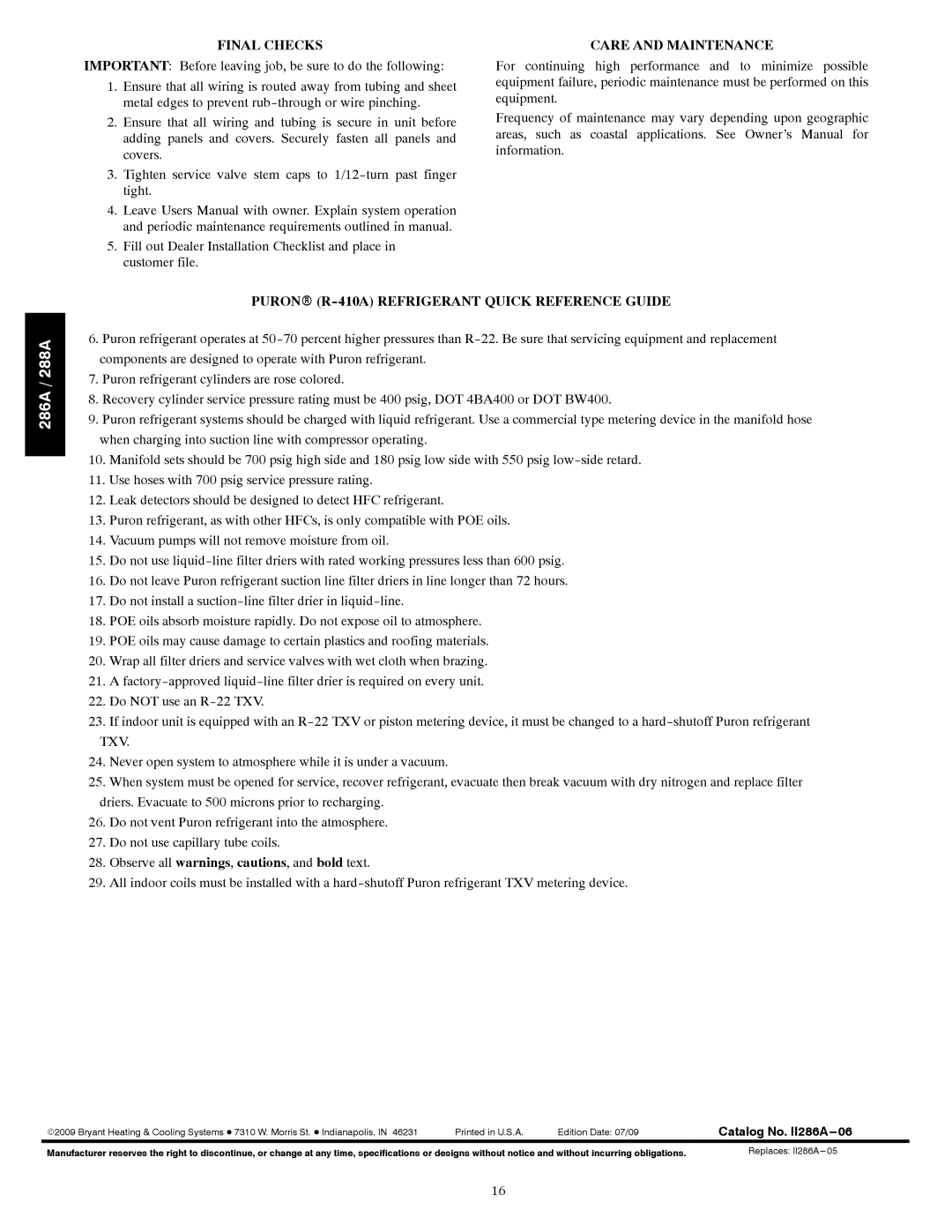FINAL CHECKS
IMPORTANT: Before leaving job, be sure to do the following:
1.Ensure that all wiring is routed away from tubing and sheet metal edges to prevent
2.Ensure that all wiring and tubing is secure in unit before adding panels and covers. Securely fasten all panels and covers.
3.Tighten service valve stem caps to
4.Leave Users Manual with owner. Explain system operation and periodic maintenance requirements outlined in manual.
5.Fill out Dealer Installation Checklist and place in customer file.
CARE AND MAINTENANCE
For continuing high performance and to minimize possible equipment failure, periodic maintenance must be performed on this equipment.
Frequency of maintenance may vary depending upon geographic areas, such as coastal applications. See Owner’s Manual for information.
286A / 288A
PURONR (R-410A) REFRIGERANT QUICK REFERENCE GUIDE
6.Puron refrigerant operates at
7.Puron refrigerant cylinders are rose colored.
8.Recovery cylinder service pressure rating must be 400 psig, DOT 4BA400 or DOT BW400.
9.Puron refrigerant systems should be charged with liquid refrigerant. Use a commercial type metering device in the manifold hose when charging into suction line with compressor operating.
10.Manifold sets should be 700 psig high side and 180 psig low side with 550 psig
11.Use hoses with 700 psig service pressure rating.
12.Leak detectors should be designed to detect HFC refrigerant.
13.Puron refrigerant, as with other HFCs, is only compatible with POE oils.
14.Vacuum pumps will not remove moisture from oil.
15.Do not use
16.Do not leave Puron refrigerant suction line filter driers in line longer than 72 hours.
17.Do not install a
18.POE oils absorb moisture rapidly. Do not expose oil to atmosphere.
19.POE oils may cause damage to certain plastics and roofing materials.
20.Wrap all filter driers and service valves with wet cloth when brazing.
21.A
22.Do NOT use an
23.If indoor unit is equipped with an
24.Never open system to atmosphere while it is under a vacuum.
25.When system must be opened for service, recover refrigerant, evacuate then break vacuum with dry nitrogen and replace filter driers. Evacuate to 500 microns prior to recharging.
26.Do not vent Puron refrigerant into the atmosphere.
27.Do not use capillary tube coils.
28.Observe all warnings, cautions, and bold text.
29.All indoor coils must be installed with a
E2009 Bryant Heating & Cooling Systems D 7310 W. Morris St. D Indianapolis, IN 46231 | Printed in U.S.A. | Edition Date: 07/09 | Catalog No. |
Manufacturer reserves the right to discontinue, or change at any time, specifications or designs without notice and without incurring obligations. | Replaces: | ||
16
